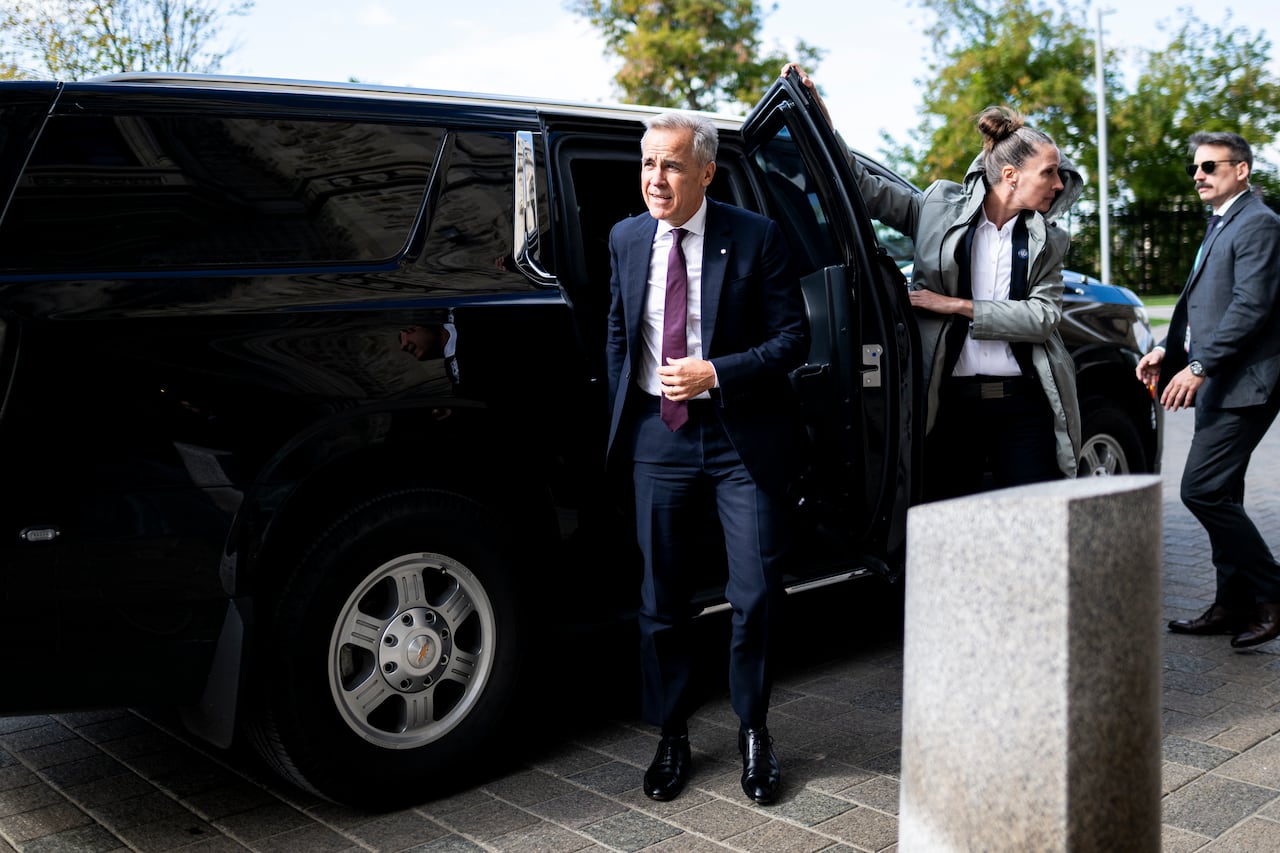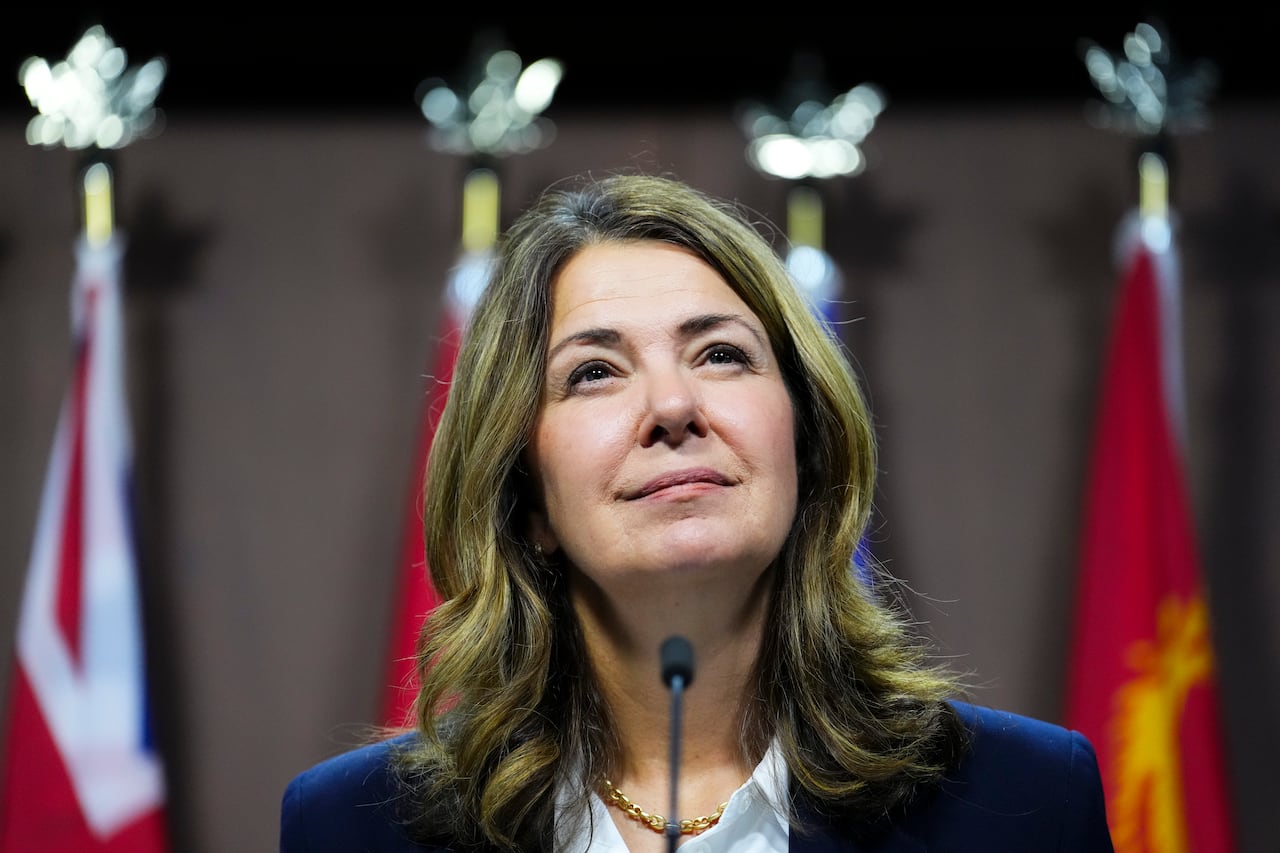Prime Minister Mark Carney said Wednesday that Canadian and U.S. officials are “currently negotiating the terms” of a tariff deal a day after he met with the U.S. president to try to end the trade war — and Canada will move forward when the two sides reach an agreement.
Speaking during question period while facing pointed questions from the opposition about what he had accomplished from his Oval Office meeting with US President Donald Trump, Carney said Canada “already has the best deal with the Americans” – most products are still sold in the US without tariffs despite Trump’s trade action – and “we’re going to get a better deal.”
“We are still negotiating to achieve more gains in key sectors,” Carney said after he and the president held what he described as a “meeting of the minds.”
“As we speak, our team is negotiating. These are not just words. We will reach an agreement,” he added.
Conservative Leader Pierre Poilievre questioned Prime Minister Mark Carney on Wednesday about US auto tariffs. Carney responds that what Canada has “at this point…is the lowest tariffs in the world.”
While the initial focus is on a deal related to the steel, aluminum and energy sectors, Carney said the two sides are “working on the forms of an auto agreement” and some sort of solution to punitive tariffs on the forestry sector. “We will only accept the best deal on softwood lumber,” Carney said.
Carney left Washington without reaching an agreement or announcing anything concrete. Canadian-US Trade Minister Dominic LeBlanc, who was also part of the White House discussions, stayed behind to hammer out the finer details of a potential agreement.
Speaking later at a summit on Canada-US relations, Carney said he and Trump are engaged in a “detailed discussion” and see “a path to specific progress” on some of the sectoral tariffs that have affected some Canadian industries. Steel and aluminum exports declined and thousands of manufacturing jobs were lost as a result of Trump’s actions.
While he supports working with Mexico and maintaining the Canada-United States-Mexico Agreement (CUSMA), he said not all trade relations will be governed from now on.
He added: “There will be some bilateral agreements.” “This is one of the realities of negotiations.”
Carney reaffirmed that the era of rapprochement with the United States has ended, in his view.
He added that “the future does not involve a harsh integration process,” as happened in the previous four decades or so. “Our relationship will never be the same again.”

Carney said he doesn’t wake up every day thinking about the relationship with the United States, but rather how he can build Canada stronger on its own.
Carney said Buy Canadian and local travel campaigns What has emerged since the beginning of this trade war is a sign that “Canadians believe in their country” and that “Canadians want to take matters into their own hands” — developments he described as “very positive.”
However, Conservative Leader Pierre Poilievre said Carney “pathetically” offered a “trillion-dollar gift” to Trump when he spoke with the president on Tuesday, which was an example of him “bowing down to the president in weakness.”
This is a sign of Carney’s commitment that the Canadian private sector will resume investing in the United States in earnest if the two sides can reach an agreement on Trump’s tariffs.
Prime Minister Mark Carney and Opposition Leader Pierre Poilievre competed in question period on Wednesday over the prime minister’s trip to Washington, D.C., to meet with US President Donald Trump.
Canadian pension plans in particular It has hundreds of billions in US investments, including infrastructure, real estate and technology.
“We are the largest foreign investor in the United States, half a trillion dollars in the last five years alone, and perhaps a trillion dollars in the next five years — if we get the agreement that we expect to get,” Carney told the president during their meeting, referring to Trump’s focus on announcing instances of foreign companies making significant investments in the United States.
Poilievre said Carney sold out Canadian workers by promoting potential investments like this.
“Where did he promise in his platform to give Americans $1 trillion of our investments?” Poilievre asked in question period.
A seemingly exasperated Carney sighed and said: “I would like to inform the Leader of the Opposition that there is such a thing as the private sector. It is the private sector that makes decisions about investment” – a criticism of Poilievre’s long parliamentary career.
The premier received accolades from Alberta Premier Danielle Smith, who said she sees signs that Carney is speaking Trump’s “love language” by showcasing potential private sector investments — and floating a revival of the Keystone XL pipeline, a project Trump supported in the past but was killed by his first-term successor, Joe Biden.
As first reported by CBC NewsCarney raised the shelved pipeline proposal, which, if built, would carry Alberta oil to the U.S. Midwest and then point south, during his talks with Trump.
Fast-tracking the Keystone expansion project would give the president something he has always wanted. In addition, U.S. Gulf Coast refineries, which largely process heavy crude like what is produced in Alberta, need supplies to replace Trump-imposed Venezuelan oil.
Speaking at the same conference as the prime minister, Smith said Carney appears to be developing a relationship with the president — an improvement from what she described as former Prime Minister Justin Trudeau’s adversarial relationship with Trump that did little for Canada.
“If you go to the United States and say, ‘You have to do this because it helps me or you have to stop doing this because it hurts me,’ that’s not his love language. His love language is, ‘Let me tell you how I can make America greater,'” Smith said.
Smith said Trump is a “relationship guy,” who prefers to work with people he likes, and his apparent fondness for Carney is a potential benefit to resolving such harassment.

“We must encourage the prime minister. We want him to have a good personal relationship,” she said.
Smith said Carney “is putting some credits in the bank account, which will push us further.”
Meanwhile, Ontario Premier Doug Ford said he was losing patience with the Americans.
“I support the prime minister but I think we have to be tough,” he said.
“We’re lowering tariffs and he’s raising tariffs,” he said of Trump. “If we can’t reach a deal, we have to hit back with double force.” “We should never take a backseat to anyone.”
https://i.cbc.ca/ais/e0d2efb4-de11-49a4-82a8-441db124f356,1759960442677/full/max/0/default.jpg?im=Crop%2Crect%3D%280%2C380%2C7285%2C4097%29%3BResize%3D620
Source link

